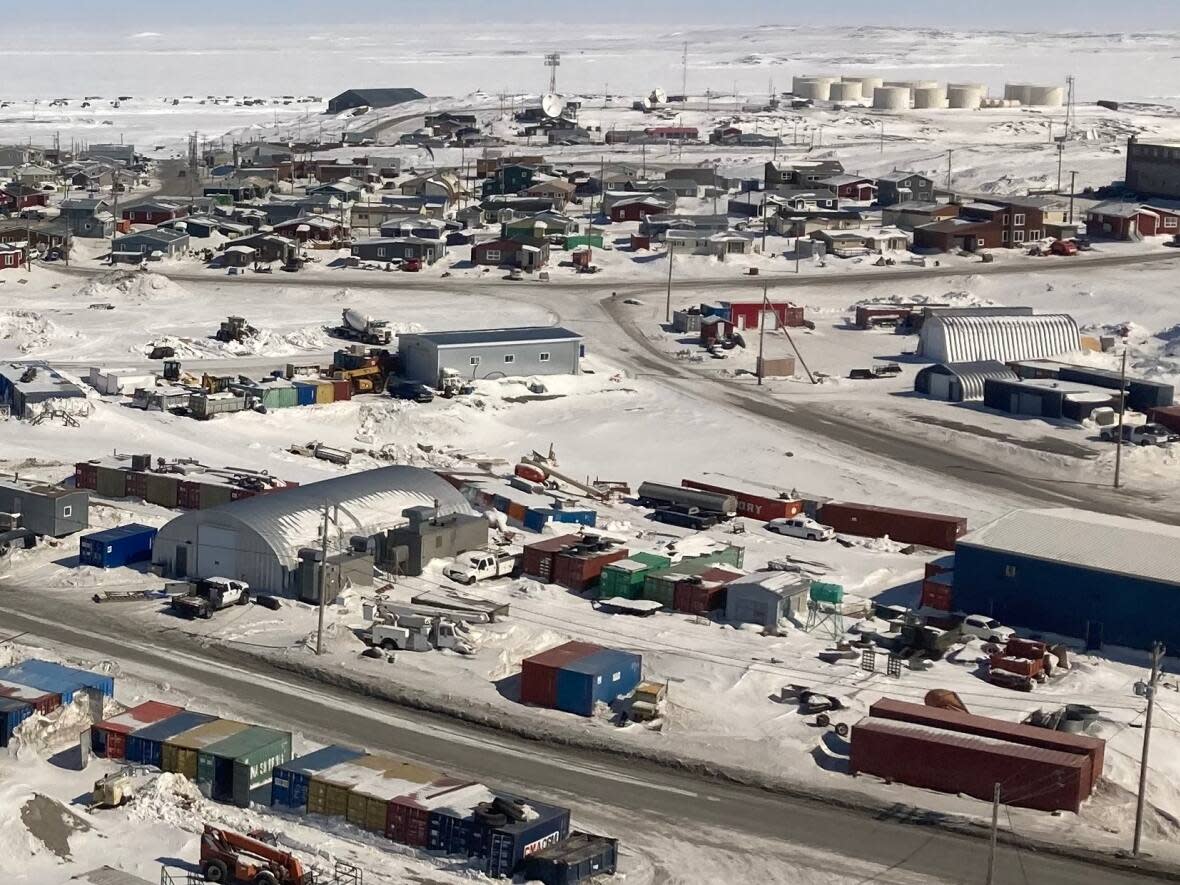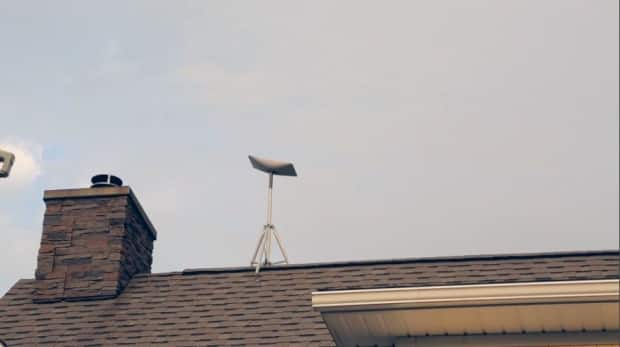Nunavut Housing Corporation, other landlords getting in the way of Starlink access

When Starlink's high-speed internet arrived in Nunavut people across the territory rejoiced, but some renters are now realizing the territory's largest landlords are obstructing access to the long-awaited service.
The Nunavut Housing Corporation (NHC) manages more than 1,700 government staff housing units and nearly 5,700 public housing units. Northview is a major residential landlord in Nunavut and the Northwest Territories. Neither landlord will let tenants install Starlink satellite dishes without permission, and neither has a policy yet for those dishes.
EPLS Group of Companies owns several properties in Rankin Inlet and Arviat in Nunavut and it's not allowing tenants to put up Starlink dishes right now.
Starlink is the low-Earth orbit satellite internet service operated by Elon Musk's spacecraft and rocket launch company, SpaceX.

It promises users in remote communities faster speeds and a terabyte of data for $140 CAD a month, plus $759 for the 30-by-51-centimetre dish, which users can install themselves.
Last month, Starlink announced it had expanded coverage to all of the three territories and Alaska.
In the North, where the internet can be notoriously slow and inconsistent, IT experts predict that Starlink and other low-Earth orbit internet providers will become increasingly popular.
High-speed internet a 'human right,' says NHC tenant
Jonah McCavour, who lives in Nunavut government staff housing in Rankin Inlet, Nunavut, said internet in the community is "absolutely atrocious." It's slow and suffers from frequent outages.
McCavour called Starlink a "life-changing service for us in Nunavut," which will make it much easier for residents to run online businesses, do school online, and videoconference with healthcare providers in Iqaluit or the South.
"Access to high-speed internet in 2022 is absolutely a fundamental human right," he said.

It's also why he was so frustrated when his hopes of switching to Starlink were quashed.
His building's owner, EPLS, denied McCavour's request to put up a Starlink satellite dish, citing the provision of his lease agreement with NHC that states the tenant not make any "alterations or additions" to the premises.
Chief operating officer Derrick Webster confirmed that EPLS isn't letting tenants in its buildings install Starlink dishes yet.
Allowing one tenant to put up a dish opens the door to all tenants, and "allowing tenants to install their own equipment all over your building is very damaging to the envelope and creates a lot of other issues," he said.
Webster said it's EPLS's goal to allow tenants to use Starlink, but EPLS doesn't know yet whether, for example, a building could get one or two Starlink dishes and provide that internet to several units.
Plus, he said, internet isn't part of EPLS's agreement with NHC.
"Technically my tenant is NHC, not the people that live in the buildings, so [NHC] really have to be involved," he said.
"If they want this service, it's definitely possible to get it here, but the question is exactly how do we get it in, and then how is it paid for?"
Self-installation could cause damage to building, says NHC
Eric Doiron, director of policy and strategic planning with NHC, said the housing corporation denied McCavour's request to install a Starlink dish because he lives in an EPLS building.
Like McCavour's lease with NHC, the housing corporation's lease with EPLS doesn't allow the tenant to make "alterations or additions to the premises."
"The tenant cannot just simply start drilling holes in the walls or the roof of a building to put [up] telecommunication hardware wiring," said Doiron.
"It could result in damage to the building envelope or it could result in, for example, leaks, or it could cause a severe fire inside the building structure."
NHC said that Starlink dishes aren't allowed on NHC-owned buildings right now because the housing corporation doesn't yet have a policy for them.
It said it wants to set out guidelines so Starlink requests are handled evenly across the territory, but it didn't have a date for when those guidelines might be ready.
Doiron said he doesn't know how many NHC tenants had asked about installing Starlink.
He did say that NHC will begin talking internally, and to property owners, about how to handle such requests, though there's no timeline for those discussions yet.
Derek McDonald, programs officer with NHC in the Kivalliq region, works with public housing tenants.
He said tenants can attach a Starlink dish to their unit if they get permission first, and they'll get permission if the dish is professionally installed.
McDonald said his office hasn't had any requests related to Starlink yet, which he attributes to the high price of the dish and of hiring a professional to put it up.
Northview owns seven residential buildings in Iqaluit, and dozens more in Inuvik, N.W.T., and Yellowknife.
In an emailed statement, vice president of operations Linay Freda said Northview is "aware of the growing interest in Starlink in the North," but that tenants aren't allowed to install telecommunications equipment to Northview property without the landlord's consent.
"Issues with respect to the safety of the installations required for Starlink and other safety and building integrity issues, such as the potential risk of interference with building wiring systems need to be considered before a policy can be determined," she said.


